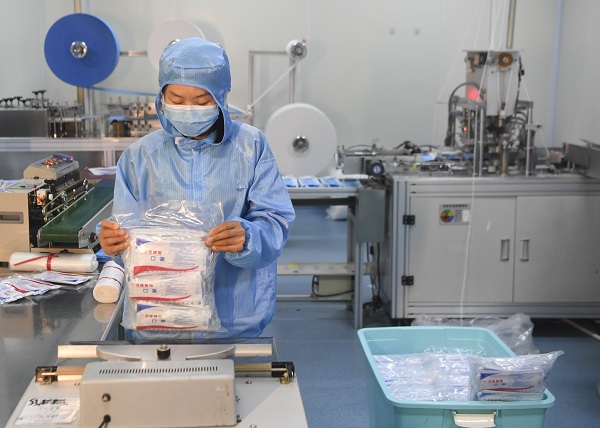New Delhi, A scientist involved in developing a coronavirus vaccine at Australia’s University of Queensland has said that it may take about one year before people will actually be able to use it.
The Coalition for Epidemic Preparedness Innovations (CEPI), a partnership against epidemics by public, private, philanthropic, and civil organisations earlier commissioned the University of Queensland (UQ) to urgently work to produce a vaccine against the recently emerged coronavirus.
“It can take four to six months for a vaccine candidate to be tested and shown to be effective in animal models. It can take another three to four months to complete human clinical trials,” Professor Paul Young, Head, School of Chemistry and Molecular Bioscience, University of Queensland, told IANS in an email interview.
“It could be 12 months before we have a manufactured and regulatory approved vaccine for clinical use,” Young said.
The novel coronavirus, which is now called COVID-19, originated in China’s Wuhan area in December 2019. The coronavirus has killed over 1,300 people in China and has spread to over 25 countries.
“It is important to stress that there is no guarantee of success, but it is conceivable that The University of Queensland, in collaboration with its partners, could have a candidate vaccine suitable for large scale manufacture in approximately 12 months,” Young said.
“As an academic institution, we do not possess large-scale manufacturing capacity and so we are initially collaborating with colleagues at CSIRO in Australia for early manufacturing scale-up. We will also be reaching out to commercial manufacturers to enable transition to larger scale,” he added.
The Commonwealth Scientific and Industrial Research Organisation (CSIRO) is Australia’s national science agency.
“At the moment, public health measures are all that we have at our disposal to contain this ongoing epidemic. The best case scenario for us is that these measures will arrest the spread of the epidemic with cases progressively diminishing and vaccines will not be required,” Young said.
“We urge everyone to follow advice from their local health authorities,” he added.










